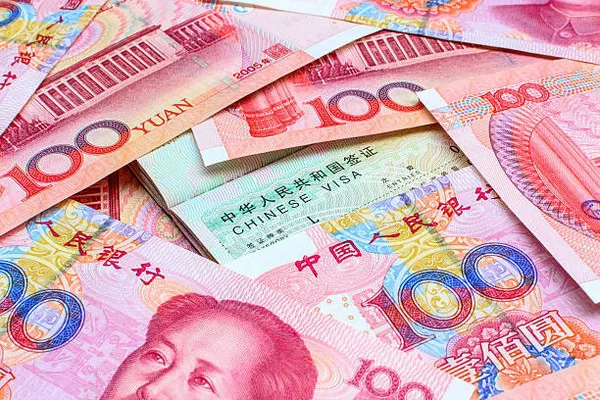China, with its vast territory, diverse culture, and rapidly growing economy, has become an increasingly popular destination for expatriates and travelers alike. One of the primary considerations for anyone considering living or traveling to China is the cost of living. In this article, we will delve into various aspects of the cost of living in China, comparing it with other countries, exploring regional price variations, understanding expatriate costs, analyzing local versus imported goods, discussing housing costs, lifestyle choices, salary, purchasing power, transportation costs, and healthcare expenses.
Cost of Living Overview
Comparing the cost of living between China and other countries can be complex due to the diverse economic landscapes and varying standards of living. However, China generally offers a lower cost of living compared to many Western countries. For example, according to Numbeo, the cost of living index in China is lower than in countries like the United States, the United Kingdom, and Australia. However, it’s essential to note that this can vary significantly depending on the city or region within China.
Price of Goods
In China, the prices of common goods such as food, clothing, and electronics can vary depending on factors such as location, brand, and quality. Generally, food prices in local markets and street vendors are relatively affordable compared to supermarkets or western-style restaurants. A meal at a mid-range restaurant might cost around 30-50 RMB ($4.5 – $7.5), while a meal at a high-end restaurant could cost significantly more. Clothing prices can range from inexpensive local brands to luxury designer labels, catering to a wide range of budgets. Electronics, especially locally manufactured products, can be competitively priced compared to imported goods.
Regional Price Variations
One significant factor influencing the cost of living in China is regional price variations. Tier-1 cities like Beijing, Shanghai, and Guangzhou typically have higher living costs compared to smaller cities and rural areas. For instance, renting an apartment in downtown Beijing could be several times more expensive than renting a similar apartment in a smaller city like Chengdu or Xi’an. Additionally, prices for goods and services can also vary within cities, with downtown areas generally being more expensive than suburbs or outlying districts.
Expatriate Costs
Expatriates living in China may incur additional costs compared to locals. These costs could include international schooling for children, which can be quite expensive, especially for prestigious international schools. Imported goods, particularly those from Western countries, often come with a premium price tag due to import taxes and shipping costs. Furthermore, expatriates may need to budget for travel expenses, including trips back to their home country to visit family and friends.
Local vs. Imported Goods
When it comes to purchasing goods in China, there’s often a noticeable price difference between locally produced items and imported goods. Imported products, especially luxury items, can be significantly more expensive due to import tariffs and other taxes. This price gap applies not only to consumer goods but also to housing, with imported furnishings and appliances commanding higher prices than locally made alternatives.
Housing Costs
Housing costs vary greatly depending on the location and type of accommodation. In major cities like Beijing, Shanghai, and Shenzhen, the cost of buying or renting property is relatively high compared to smaller cities. Rent for a one-bedroom apartment in the city center of Beijing, for example, could cost around 5,000 – 10,000 RMB ($750 – $1,500) per month, while the same apartment in a smaller city might rent for half that amount. Purchasing property in China, especially in prime locations, can be a substantial investment, with prices comparable to or even exceeding those in some Western cities.
Lifestyle Choices
The lifestyle choices of individuals can have a significant impact on their overall cost of living in China. Dining out frequently at restaurants or ordering takeout can quickly add up, especially in urban areas where restaurant prices are higher. On the other hand, cooking at home using locally sourced ingredients can be much more affordable. Similarly, entertainment choices such as attending concerts, theater performances, or sporting events can vary in cost, with tickets for popular events often being more expensive.
Salary and Purchasing Power
Understanding the average salary and purchasing power in China is crucial for evaluating the cost of living. According to data from the National Bureau of Statistics of China, the average annual disposable income per capita in urban areas was around 43,834 RMB ($6,500) in 2020. However, salaries can vary significantly depending on factors such as occupation, industry, and location. Expatriates working for multinational companies or in specialized fields may command higher salaries to offset the higher cost of living.
Transportation Costs
Transportation costs in China can vary depending on the mode of transportation and the distance traveled. Public transportation, including buses, subways, and trains, is generally affordable and convenient, especially in major cities. For example, a subway ride in Beijing or Shanghai typically costs around 3-7 RMB ($0.45 – $1), depending on the distance traveled. Owning a car in China can be more expensive due to high taxes and registration fees, as well as the cost of fuel and maintenance.
Healthcare and Insurance
Access to healthcare services and the cost of health insurance are essential considerations for expatriates living in China. While the public healthcare system in China is relatively affordable, expatriates may prefer to use private hospitals and clinics, which can be more expensive but offer higher quality care and English-speaking staff. It’s essential for expatriates to have comprehensive health insurance coverage to protect against unexpected medical expenses.
In conclusion
While the cost of living in China can vary depending on factors such as location, lifestyle choices, and expatriate status, it generally offers a relatively affordable standard of living compared to many Western countries. By understanding the various factors influencing the cost of living in China and making informed decisions, expatriates and travelers can enjoy a comfortable and rewarding experience in this dynamic and vibrant country.


